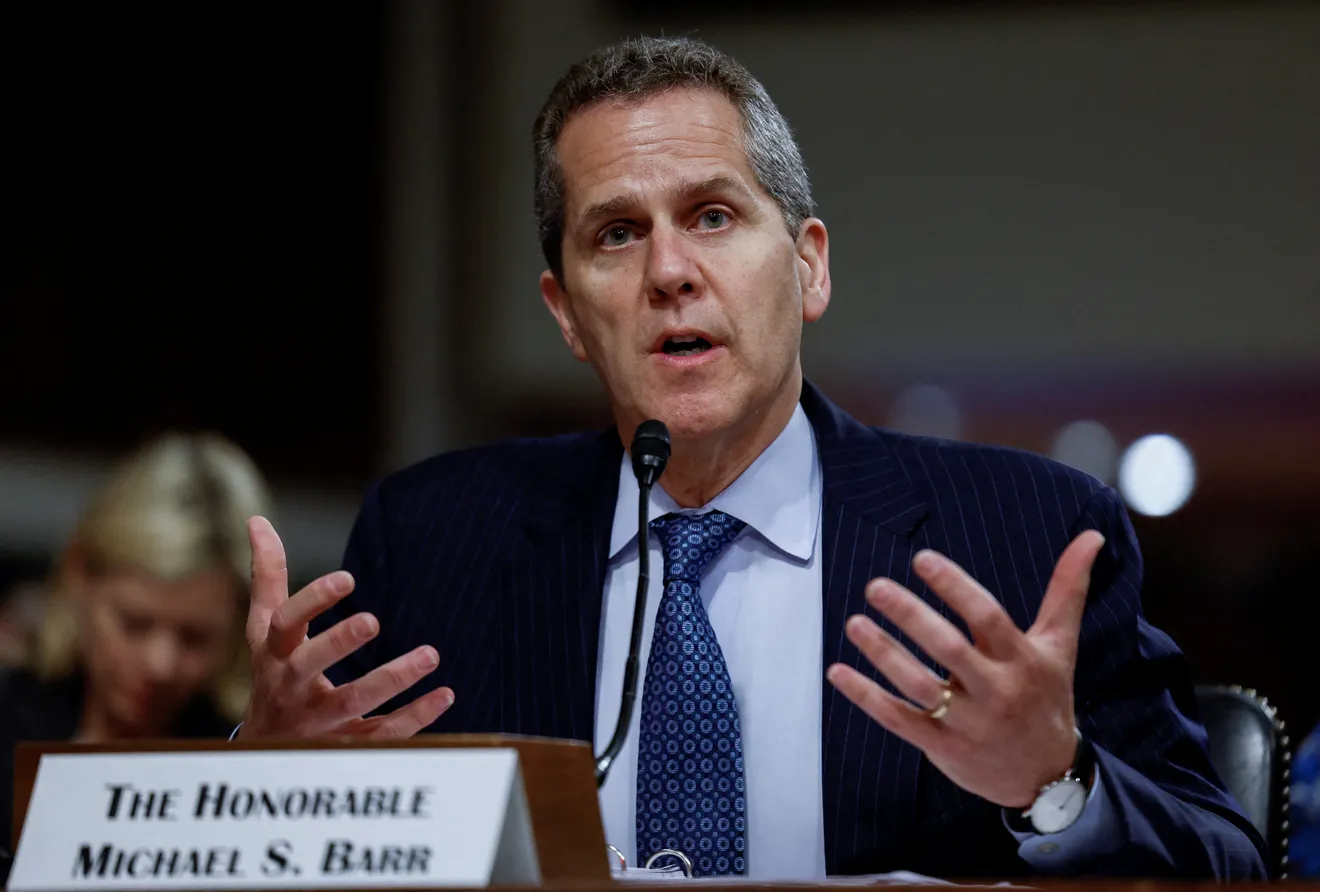Banking stocks rallied Monday amid expectations of lighter regulations following the resignation announcement of Michael Barr, the Federal Reserve’s Vice Chair for Supervision. Barr, who has been a key advocate for stricter banking rules since taking the position in July 2022, will step down on February 28 but remain on the Fed’s board.
The decision comes as President-elect Donald Trump signals plans to reshape financial oversight, sparking concerns among consumer advocates about the potential weakening of safeguards designed to protect against risky banking practices.
Market Reaction
Bank stocks surged on the news, with Citigroup shares climbing 2.5%, Bank of America rising 1.4%, and Wells Fargo gaining 1.1%. Analysts believe Barr’s departure could pave the way for more lenient oversight, potentially benefiting the banking industry.
“The risk of a dispute over the position could be a distraction from our mission,” Barr said in a statement. “In the current environment, I’ve determined that I would be more effective in serving the American people from my role as governor.”
Regulatory Outlook
Barr’s tenure focused on requiring banks to hold more capital as a cushion against financial crises, a move criticized by the industry for limiting investment and lending opportunities. His resignation opens the door for Trump to appoint a more industry-friendly replacement.
Fed Governor Michelle Bowman, known for her alignment with banking interests, is seen as a leading contender for the role. According to Brian Gardner, Chief Washington Policy Strategist at Stifel, Bowman’s appointment could accelerate the review of bank mergers, particularly for small and midsize institutions.
Additionally, Gardner speculated that Barr’s exit signals the likely end of the Basel III Endgame, a proposed global framework to strengthen bank capital requirements. “While there could be a new rule, I think it would be capital-neutral,” Gardner noted.
Balancing Power at the Fed
Despite Barr’s departure as Vice Chair for Supervision, Democrats will maintain a majority on the Fed’s seven-member board until early 2026, limiting the potential for immediate deregulatory measures.
“It is hard for us to see much getting done on a deregulatory side this year given the need to confirm new regulators,” said Jaret Seiberg, Managing Director at TD Cowen.
Barr’s term as a Fed governor extends until January 2032, while his supervisory role was set to expire in July 2026.
A Contentious Exit
Reports suggest Trump has been seeking Barr’s removal from his supervisory role, though legal uncertainties surround whether a president can demote a Fed official. While a president can only dismiss a Fed governor for cause, it’s unclear if the same applies to specific roles within the board.
Preparing for a potential legal challenge, Barr reportedly sought advice from Arnold & Porter, a law firm specializing in federal cases. Fed Chair Jerome Powell has publicly stated that Trump lacks the authority to remove him or Barr from their respective positions.
Reactions from Advocates and Critics
Consumer advocates have expressed alarm over Barr’s resignation, viewing it as a win for Wall Street at the expense of regulatory integrity. Bartlett Naylor, Financial Policy Advocate for Public Citizen, criticized the banking industry’s pressure campaign.
“Wall Street’s attack on honorable public servants attempting to protect hardworking Americans and our economy from reckless banking sends ice water into the veins of financial industry oversight,” Naylor said.
Conversely, incoming Senate Banking Committee Chair Tim Scott (R-S.C.) condemned Barr’s performance, citing supervisory failures during the Spring 2023 bank collapses, including the high-profile fall of Silicon Valley Bank, as well as the controversial Basel III Endgame proposal.
“From his supervisory failures during the Spring 2023 bank failures to the disastrous Basel III Endgame proposal − Michael Barr has failed to meet the responsibilities of his position,” Scott said. “I stand ready to work with President Trump to ensure we have responsible financial regulators at the helm.”
Implications Moving Forward
Barr’s resignation marks a turning point in the Fed’s approach to financial oversight. With Trump’s impending appointments to the board, the regulatory environment could shift dramatically, favoring a more lenient stance on capital requirements and bank mergers. However, the balance of power on the board ensures that significant changes may take time to materialize.
The coming months will reveal whether these regulatory adjustments bolster economic growth or reintroduce risks to financial stability.





